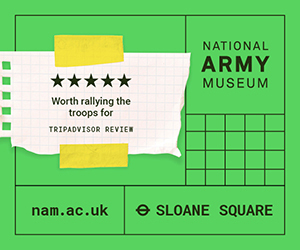Primary Times - the definitive what’s on and where to go family guide of activities and events for children of primary school age. Things to do with your kids during the school holidays including arts and craft activities, music and theatre for children, parties, competitions, days out, and family attractions along with term time drama schools, dance classes, after school clubs and sports activities. Things to do at a place near you!
Are you ready for your trip to the seaside?

An EMAS ambulance by the coastline in Mablethorpe during sunrise.
Now that the weather has got much warmer and the skies are blue it is only natural that more of us are thinking about a staycation at the seaside.
Five things to consider before you embark on your trip include:
- Take a hat, sunglasses and at least a factor 30 sun cream with you.
- Knowing the exact location of your hotel, bed and breakfast, caravan site or camping ground you are planning to have as your base – share these details with people you trust and let them know how long you’ll be away for.
- Know where your nearest pharmacy, urgent treatment centre and Emergency Department and plan how you can get there from where you are staying if required.
- Find out if the beach you are going to will have lifeguards on duty. A good sign is if you see red flags flying.
- Download what3words – the app breaks down the entire globe into specific 3mx3m squares and assigns them with three words, for example ‘just.like.this.’ You can pass this information over to the emergency services if you don’t know where you are.
In the East Midlands we have 50 miles of breathtakingly beautiful coastline in Lincolnshire and we expect a huge number of visitors across the region this summer. Skegness has a year-round population of 21,000 but in the summer months this can swell to 250,000 people – an increase of just over 1,090%.

We strongly recommend that while COVID-19 remains a part of all our lives you should continue to maintain as much social distancing as possible at the beach.
A huge increase in population to seaside towns and resorts will mean more traffic on the road. Make sure you allow plenty of time for you to arrive at your destination safely and ensure keep a handy kit in your car for yours and your families comfort if you have a long journey or are stuck in traffic during the heat.
This kit should include:
- First aid kit – can be used to treat minor ailments such as headaches, hay fever and to patch up small cuts and wounds. Click here to find out what to include in your first aid kit.
- Sunglasses
- Insulated cooler – to keep perishable food and drinks cool and fresh.
- Battery pack and phone charger – in the event that your car breaks down and you need to call for help, you don’t want to find out that your phone is dead.
- Emergency cash.
Although restrictions in England were lifted on 19 July 2021, COVID-19 still remains a part of our lives so we suggest avoiding areas with large crowds and continuing to wear a face mask if you cannot maintain a distance from other people.
You will need your face mask to hand if you do need to enter an NHS setting while you are on your holidays for whatever reason. These include pharmacies, urgent treatment centres and the Emergency Department of a hospital.
The sunshine is the main reason for heading to the beach but treat it with respect

Make sure you apply adequate sun protection to avoid being left red-faced.
Make sure you wear suncream and apply it to the skin at least 30 minutes before venturing outside to allow the sunscreen to bind to your skin. Reapply every two hours of exposure and immediately after swimming or excessive sweating.
A wide brim hat is an excellent choice to protect both the top of your head, the back of your neck and your forehead from the sun’s powerful ultra-violet (UV) rays.
Wear sunglasses to protect your eyes and remember to never look directly into the sun (even with sunglasses on).
Common hazards at the beach and how to avoid them

Babies, children and the elderly are the most at risk dehydration.
Did you know that the most common time for children to have accidents is during the first hour into the family holiday? That’s because parents are usually distracted while unpacking the car. If you have children, make sure you know where they are during this time.
When you head to the beach, make sure you look for potential dangers before going into the sea. Find out what local warning flags and signs mean and adhere to them.
Inflatable dinghies or lilos are a well-known hazard – there have been drownings as people on inflatables are blown out to sea and get into trouble. Do not use them in open water. Use them in sheltered and confined spaces, such as rock pools.
Visit the Royal Lifesaving Society website for more information about potential hazards at the beach.
We wish you all an enjoyable time this summer.





